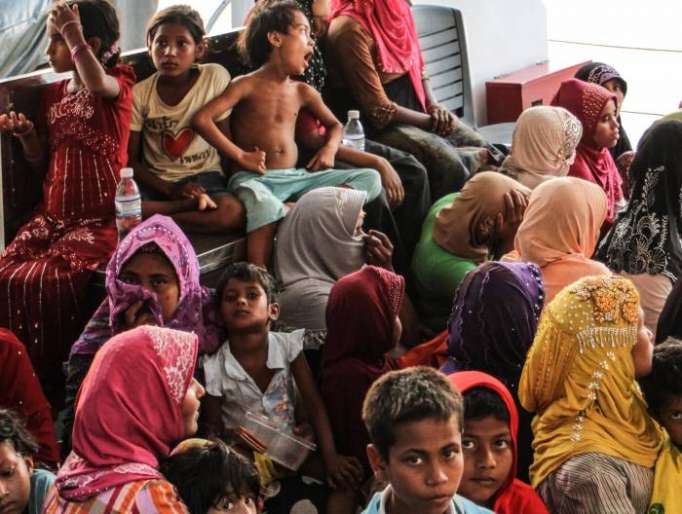Five members of a family returned to western Rakhine state from a refugee camp across the border in Bangladesh, according to a government statement.
It said that authorities determined whether they had lived in the country and provided them with a national verification card – a form of ID but one that does not mean the citizenship that Rohingya have been denied in Buddhist-majority Myanmar, where they have faced persecution for decades.
The government said the family were staying temporarily with relatives in Maungdaw town, the administrative centre close to the border.
The statement did not say whether any more repatriations were being planned. Bangladesh has given Myanmar a list of more than 8,000 refugees to begin the repatriation, but the return has been delayed by a complicated verification process.
The two countries agreed in December to begin repatriating the refugees in January, but there were concerns among aid workers and Rohingya that they would be forced to return and face unsafe conditions in Myanmar.
Hundreds of Rohingya were reportedly killed in the recent violence, and many houses and villages burnt to the ground. The United Nations and the US have described the army crackdown as “ethnic cleansing”.
On Friday, the UN refugee agency (UNHCR) and Bangladesh finalised a memorandum of understanding that describes the repatriation process as “safe, voluntary and dignified ... in line with international standards”.
The UNHCR said it considers that “conditions in Myanmar are not yet conducive for returns to be safe, dignified and sustainable. The responsibility for creating such conditions remains with the Myanmar authorities, and these must go beyond the preparation of physical infrastructure to facilitate logistical arrangements.”
Earlier in the week, Myanmar social welfare minister Win Myat Aye met with about 40 Rohingya refugees at the Kutupalong camp in Cox’s Bazar in Bangladesh for more than an hour, sometimes exchanging heated words.
A Rohingya leader, Abdur Rahim, said at least eight rape victims were among the group.
Mr Rahim said the group presented 13 demands for the government to meet for their return to Myanmar.
The refugees apparently became angry when told they must accept national verification cards provided by Myanmar that state they are migrants from Bangladesh.
Rohingya Muslims have long been treated as outsiders in Myanmar, even though their families have lived in the country for generations. Nearly all have been denied citizenship since 1982, effectively rendering them stateless. They are denied freedom of movement and other basic rights.
Mr Rahim said they demanded to be recognised as citizens of Myanmar before the repatriation starts and that their security arrangements be supervised by the UN.
Rohingya who have been repatriated in the past after previous refugee exoduses have been forced to live in camps in Myanmar.
The Independent
More about: Rohingya
















































